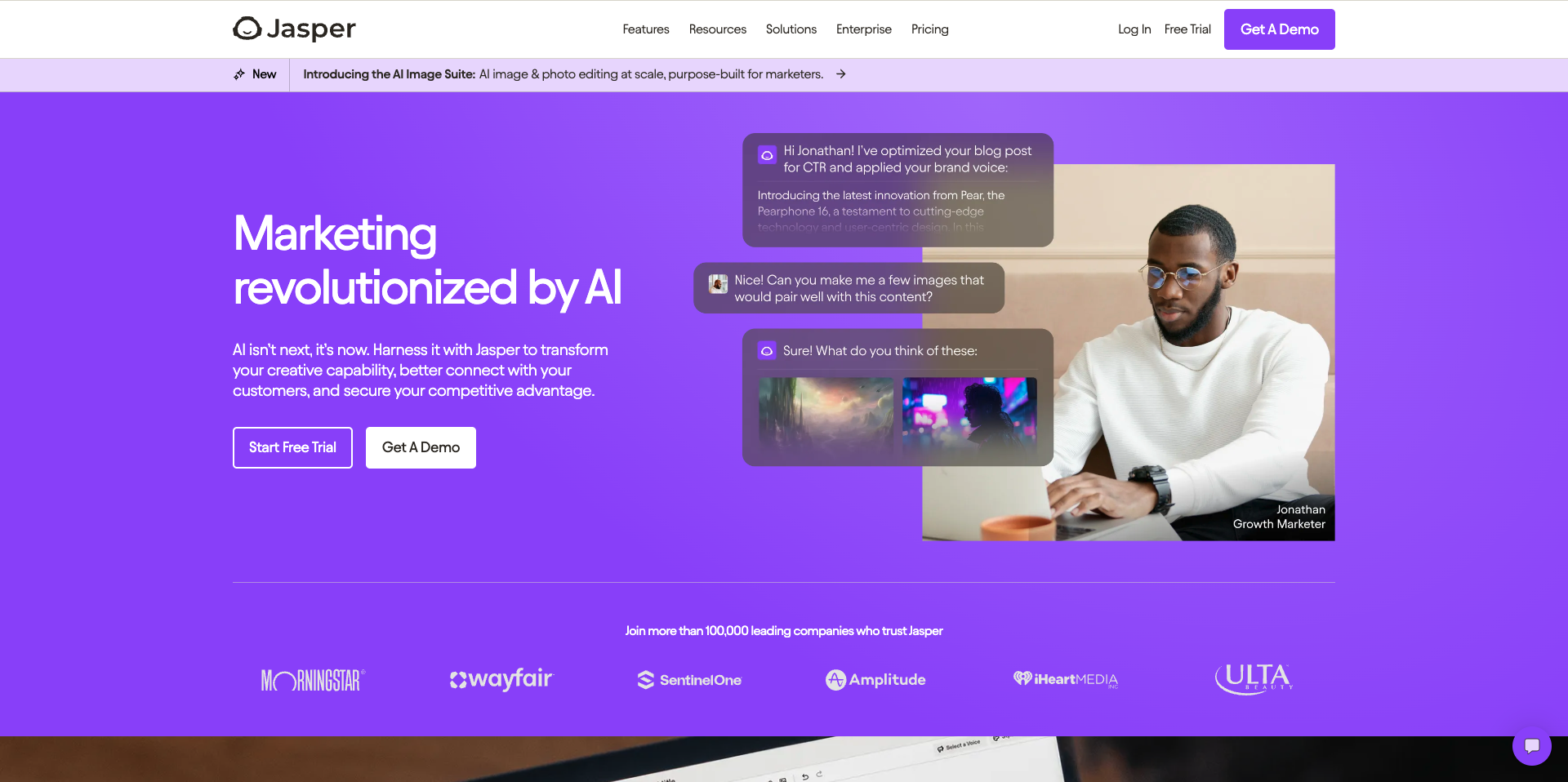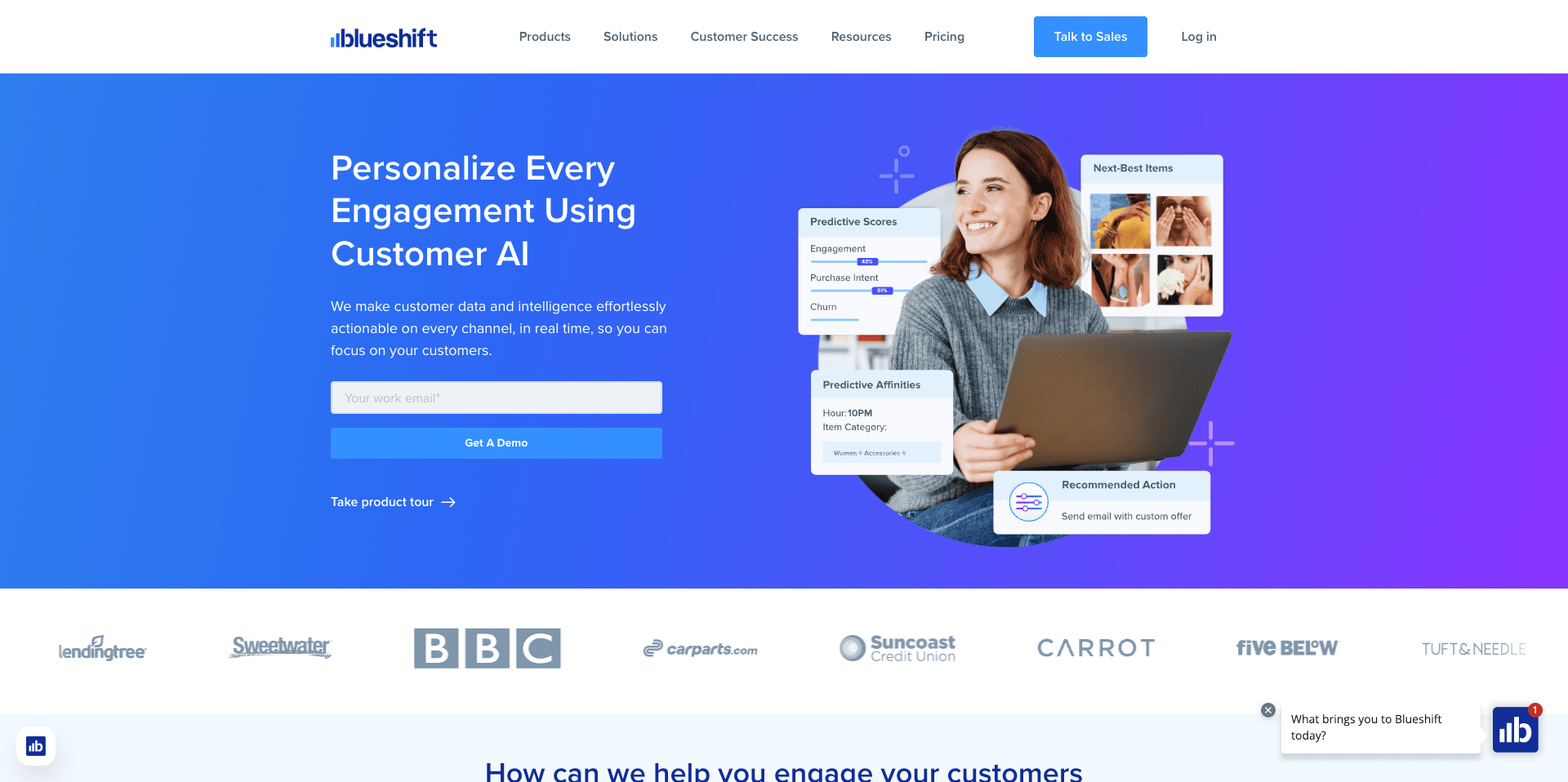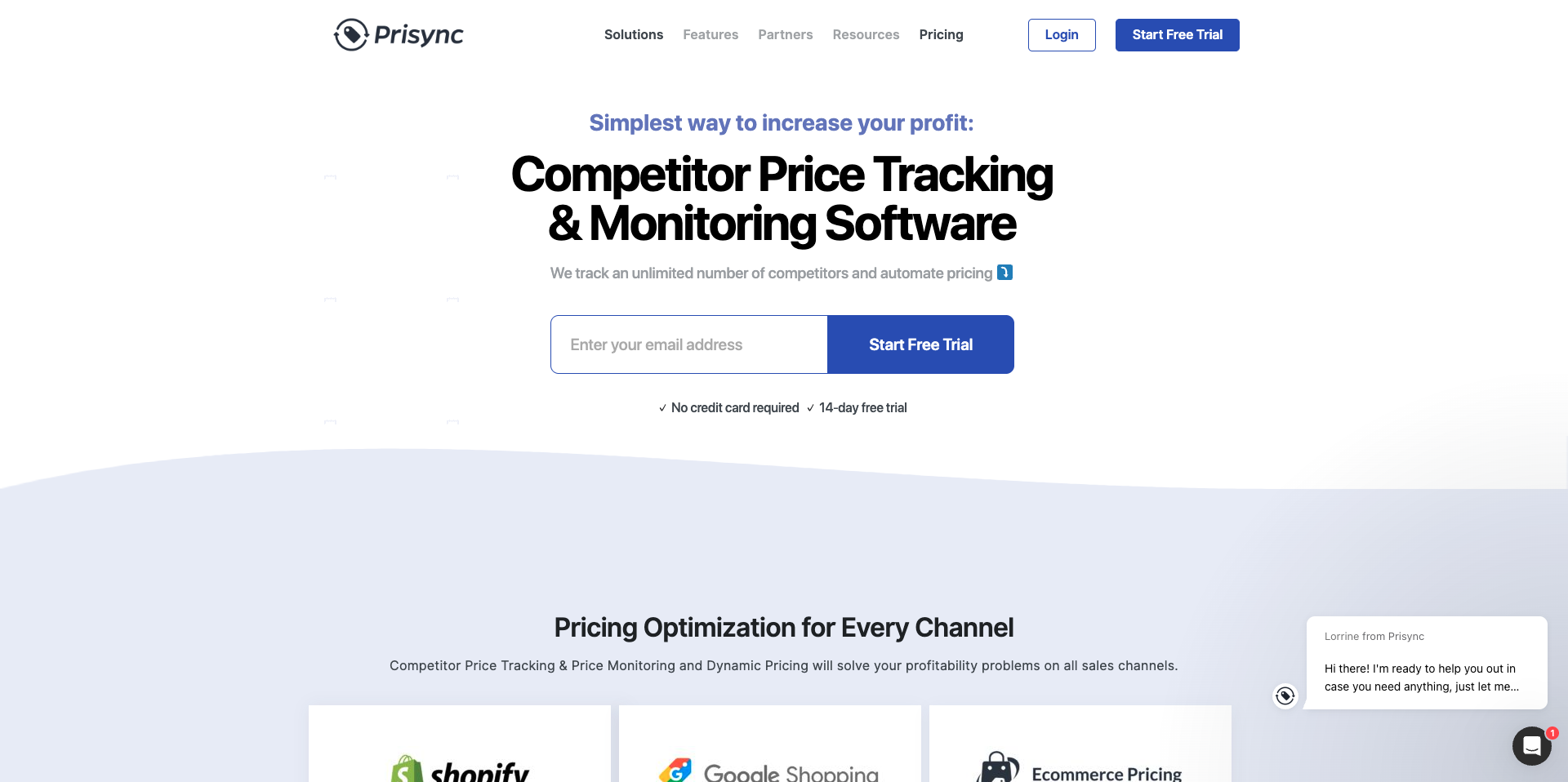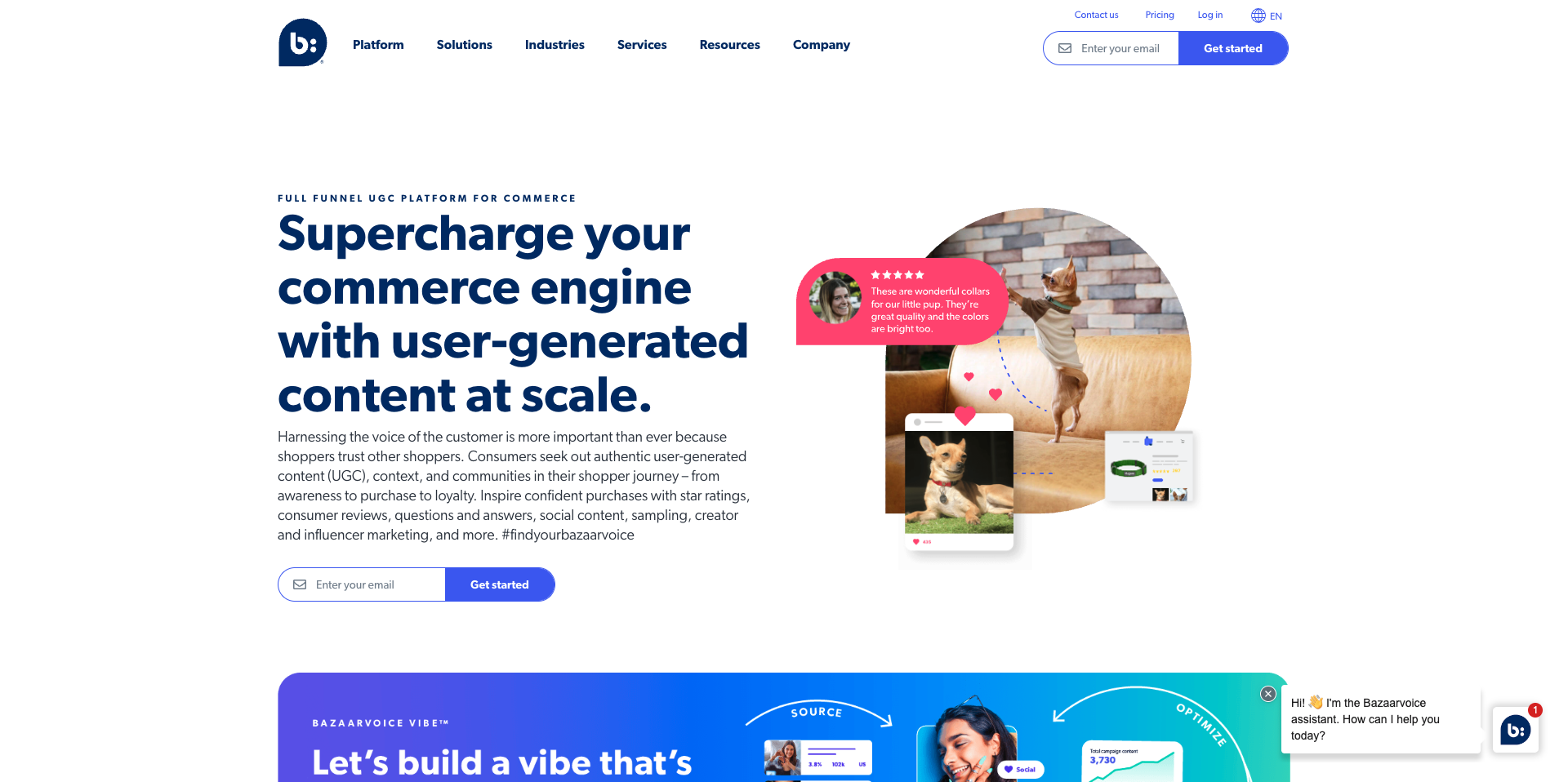In today's rapidly evolving e-commerce landscape, businesses must adapt to stay ahead. The advent of generative AI has introduced game-changing capabilities, empowering companies to enhance customer experiences, automate repetitive tasks, and ultimately scale their operations more efficiently. With the rise of AI-driven tools, even small to medium-sized businesses (SMBs) can leverage advanced technology to compete with larger enterprises by automating processes, generating personalized marketing content, and improving operational efficiency.
Generative AI has fundamentally shifted how e-commerce businesses operate. By analyzing customer data, predicting trends, and creating bespoke shopping experiences, AI tools allow e-commerce platforms to become more responsive to consumer demands. For businesses, the ability to deliver personalized content and recommendations at scale is no longer a luxury—it is an essential competitive advantage. In this article, we will explore how generative AI is transforming e-commerce and introduce eight powerful tools that can help businesses, particularly SMBs, accelerate growth.
Transforming E-Commerce Through Generative AI
Generative AI is reshaping how e-commerce businesses operate, offering unparalleled opportunities to enhance customer engagement and streamline operations. Whether through personalized customer interactions or automated processes, generative AI enables businesses to focus on scaling and growth without sacrificing quality or efficiency. This section delves into the key areas where AI is making the biggest impact.
1. Tailoring the Shopping Experience Like Never Before
Personalization has become the cornerstone of successful e-commerce businesses. Customers today expect brands to offer experiences tailored to their individual preferences, behaviors, and past interactions. Generative AI makes this possible by analyzing vast amounts of customer data to provide hyper-personalized product recommendations, marketing messages, and shopping experiences. This level of customization not only improves customer satisfaction but also significantly boosts conversion rates and customer retention. AI tools can even predict what products a customer might be interested in before they know it themselves, leading to a more engaging and seamless shopping journey.
With AI’s ability to handle large-scale data analysis in real time, e-commerce businesses can offer personalized experiences to millions of customers simultaneously. Dynamic product recommendations based on user behavior, personalized email campaigns, and tailored landing pages are just a few examples of how generative AI is reshaping the way businesses engage with their customers. This approach leads to stronger customer loyalty, as shoppers feel understood and valued. As the e-commerce landscape becomes more competitive, businesses that leverage AI to deliver these personalized experiences will have a distinct advantage.
2. Boosting Efficiency Through Automation
Beyond personalization, generative AI offers immense value in automating repetitive tasks that would otherwise require significant time and resources. E-commerce operations such as inventory management, order processing, and customer service can be streamlined through AI-powered automation, allowing businesses to operate more efficiently. AI-powered tools can generate SEO-optimized product descriptions, marketing copy, and social media content, reducing the burden on human teams. This not only saves time but also minimizes the risk of human error, ensuring greater consistency across all content and communications.
Automation is not limited to content creation. AI-driven customer service tools, such as chatbots, are now handling vast volumes of customer inquiries 24/7. These bots can provide instant, accurate responses to common questions, improving the customer experience while reducing the workload on human customer service teams. In logistics and supply chain management, AI can forecast demand, optimize stock levels, and manage order fulfillment processes. By automating these crucial but time-consuming tasks, businesses can focus their energy on growth strategies and innovation.
3. Generating Creative Solutions and Insights
In addition to automating routine tasks, generative AI is unlocking new creative possibilities for e-commerce businesses. AI tools can create original content, including images, product designs, and marketing materials, based on simple inputs. This gives businesses the ability to experiment with new product concepts, advertising campaigns, and brand imagery, all without needing to invest heavily in creative teams or agencies. For instance, generative AI can design personalized email campaigns that speak directly to a customer’s unique preferences, improving the likelihood of engagement.
AI-powered analytics also provide deep insights into customer behavior, allowing businesses to make smarter decisions about their strategies. By analyzing customer feedback, sales data, and market trends, AI tools can suggest improvements to product offerings, identify emerging trends, and even help in developing new products that align with customer demand. These data-driven insights allow businesses to stay ahead of the competition and make informed decisions that drive long-term growth. With generative AI at the helm, creative innovation and strategic decision-making are becoming faster, smarter, and more accessible to businesses of all sizes.
4. Improving Decision-Making Through Data Insights
Generative AI’s ability to process vast quantities of data in real-time allows e-commerce businesses to make data-driven decisions that can dramatically improve their operations. Predictive analytics, powered by AI, enable businesses to anticipate future trends, optimize pricing strategies, and manage inventory more effectively. For example, AI can predict which products are likely to be in high demand based on historical sales data, current trends, and even external factors like seasonality. This allows businesses to adjust their inventory levels accordingly, preventing both overstock and stockouts.
AI-powered data insights extend beyond operational efficiency. These insights also help businesses refine their marketing strategies by identifying the most effective channels, messages, and timing for customer engagement. For instance, AI tools can analyze the success of previous marketing campaigns and recommend adjustments that maximize return on investment. This level of precision in decision-making ensures that businesses are not only responsive to current market conditions but also proactive in shaping their future success.
5. Increasing Customer Engagement and Loyalty
Building strong, lasting relationships with customers is essential for long-term success in e-commerce, and generative AI plays a crucial role in enhancing customer engagement. By leveraging AI-powered chatbots and virtual assistants, businesses can provide immediate, personalized responses to customer queries, improving satisfaction and fostering a sense of loyalty. These tools are available 24/7, offering customers around-the-clock support and ensuring that their needs are met promptly, regardless of time zone or location.
Moreover, AI-driven loyalty programs can track customer behavior and reward engagement, further strengthening the bond between the business and its customers. Automated follow-up emails, personalized discount offers, and tailored loyalty rewards are just a few examples of how AI can drive repeat business and increase customer lifetime value. As competition in the e-commerce space continues to intensify, businesses that prioritize customer engagement through AI-driven personalization and automation will be well-positioned to thrive.
The Top 8 AI-Powered Solutions for E-Commerce Success
To capitalize on the benefits of generative AI, SMBs can incorporate a variety of AI-powered tools that streamline operations, improve personalization, and ultimately drive growth. Below, we introduce eight essential AI tools for e-commerce businesses, providing specific insights into how each can transform your operations.
1. Jasper: Your AI Content Creation Sidekick
Jasper is an AI-powered content generation tool designed to automate content creation for small to medium-sized businesses. Whether it's crafting engaging product descriptions, developing social media posts, or generating email campaigns, Jasper helps businesses produce high-quality, SEO-optimized content with ease. It integrates seamlessly with Surfer for enhanced SEO capabilities, ensuring that your content ranks higher in search engine results.

The tool's multilingual capabilities and advanced content templates make it particularly useful for businesses with a global presence. Additionally, Jasper’s AI adapts to the specific tone of your brand, helping maintain consistency across all customer touchpoints.
2. Syte: Visual Search and Product Discovery Redefined
Syte is a visual search engine and product recommendation tool that helps e-commerce brands enhance their customers' shopping experiences. With Syte, shoppers can upload images and receive visually similar product suggestions, making it easier to find what they’re looking for without needing to search manually. This tool is especially effective for fashion and lifestyle brands, as it offers personalized recommendations based on customer preferences.

By integrating Syte’s AI technology, businesses can boost product discoverability and increase the likelihood of conversions through its visually rich search and recommendation engine.
3. Clerk.io: Intelligent Search and Recommendations at Your Fingertips
Clerk.io combines intelligent search with real-time personalized product recommendations to drive sales for e-commerce businesses. Using natural language processing (NLP), Clerk.io ensures that customers can find what they’re searching for, even if they make typos or use different synonyms. This AI tool also enhances product recommendations by analyzing user behavior and offering personalized suggestions that drive conversions.

For e-commerce businesses looking to improve their search functionality and recommend the right products to customers at the right time, Clerk.io is a powerful tool that delivers results through its deep learning algorithms.
4. ViSenze: AI-Powered Visual Recognition for Seamless Shopping
ViSenze is an AI-powered visual recognition tool that helps customers search for products using images or videos. This tool enhances product discovery by allowing shoppers to upload pictures and receive relevant product suggestions from the catalog, driving engagement and increasing conversion rates.

ViSenze’s AI is particularly useful for online retailers who rely on strong visual elements, such as fashion, furniture, or home decor brands. It offers seamless integration with e-commerce platforms and helps retailers improve product visibility and customer satisfaction.
5. Blueshift: Hyper-Personalized Engagement Across Channels
Blueshift is an AI-driven customer engagement platform that helps businesses deliver personalized experiences across multiple channels, including email, SMS, and social media. With its predictive intelligence engine, Blueshift identifies customer behavior patterns and automatically sends targeted communications that increase engagement and conversions.

By automating and personalizing marketing campaigns, Blueshift allows businesses to optimize their communication strategies, ensuring that each message is relevant to the recipient's preferences and behaviors.
6. LivePerson: AI-Powered Chatbots for Always-On Customer Support
LivePerson uses AI-powered chatbots to deliver real-time, 24/7 customer support. This tool enables businesses to scale their customer service operations by automating responses to frequently asked questions and providing instant solutions to customer issues.

By integrating LivePerson into their e-commerce platforms, businesses can improve customer satisfaction while reducing the human workload needed for customer support. The tool also collects valuable data on customer interactions, helping businesses refine their service offerings over time.
7. Prisync: Stay Competitive with AI-Powered Price Optimization
Prisync is an AI-driven price optimization tool that monitors competitor pricing in real-time, allowing businesses to adjust their prices dynamically based on market conditions. By tracking competitor pricing strategies, Prisync enables e-commerce businesses to remain competitive, maximize profit margins, and respond swiftly to market changes.

Prisync’s automated pricing adjustments give businesses an edge in competitive markets, ensuring that they can maintain profitability while offering competitive prices that appeal to customers.
8. Bazaarvoice: Leveraging Customer Feedback for Better Products
Bazaarvoice is an AI-powered platform that analyzes customer reviews and feedback, helping e-commerce businesses improve their product offerings and overall customer satisfaction. By collecting and analyzing data from real customer reviews, Bazaarvoice provides actionable insights that allow businesses to optimize their products and marketing strategies.

This tool not only helps e-commerce businesses understand what their customers value but also helps drive sales by showcasing positive reviews and ratings that build trust with potential customers.
Future-Proofing Your Business: Why Generative AI is Key to E-Commerce Success
Generative AI is revolutionizing the e-commerce industry by enabling businesses to automate processes, personalize customer experiences, and optimize operations. By leveraging AI-powered tools, SMBs can now compete on a level playing field with larger enterprises, delivering tailored experiences and making data-driven decisions that drive growth. The eight tools highlighted in this article represent some of the most innovative AI solutions available today, each offering unique capabilities to help e-commerce businesses thrive in 2024 and beyond.
As generative AI continues to evolve, its applications in e-commerce will expand even further, offering new ways for businesses to enhance customer satisfaction, streamline operations, and boost profitability. For SMBs seeking to grow their e-commerce operations, adopting AI tools is not just an option—it's a necessity for staying competitive in a rapidly changing market.
- Salesforce | How Leaders Are Navigating AI in Ecommerce
- LeewayHertz | Generative AI in E-commerce: Use Cases, solutions and implementation
- Boston Consulting Group | The Pragmatist’s Guide to GenAI in E-Commerce
- PYMNTS | Big Tech’s AI Tools Are Helping Democratize Growth for Small Businesses
- Shopify | 10 Best AI Tools for Ecommerce Businesses
- Influencer Marketing Hub | Top 10 AI eCommerce Tools to Drive Sales in 2024
- Wisepops | 8 AI Tools for Ecommerce [2024]
- Giselle | AI in SEO: Mastering the Future of Search Optimization Tools
Please Note: This content was created with AI assistance. While we strive for accuracy, the information provided may not always be current or complete. We periodically update our articles, but recent developments may not be reflected immediately. This material is intended for general informational purposes and should not be considered as professional advice. We do not assume liability for any inaccuracies or omissions. For critical matters, please consult authoritative sources or relevant experts. We appreciate your understanding.
